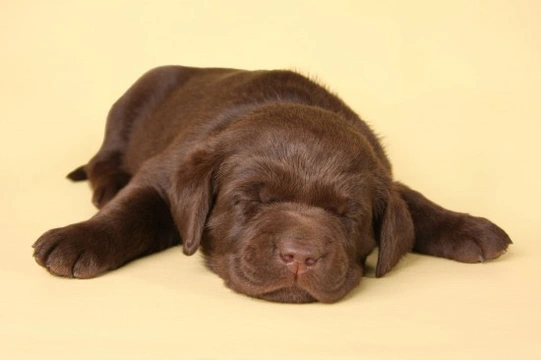
Do some dogs need to sleep more than other dogs?
While cats certainly hold the golden blanket award for excessive sleeping, it can come as a surprise to some dog owners to learn that dogs actually sleep for anything up to around fourteen hours a day as well, and some dogs will sleep for even longer! A variety of different factors dictate how long any particular dog will need to sleep for, including the environment that the dog lives in, how active they are, what they are fed, their age, and their breed.
The size of the dog itself isn’t generally a factor in how much any given dog will sleep, although some of the larger breeds and giant breeds are right up there amongst the most prolific of sleepers! So, what factors dictate how long any given dog will need to sleep for, and how can you tell if your dog’s sleeping patterns are normal? Read on to find out!
The age of the dog
One of the main elements that dictate how much any given dog will want to sleep for is their age. As with every other animal including humans, dogs go through a distinct life cycle, during which their need for sleep will alter at different points, according to their needs.
Top of the pile of prolific sleepers are young puppies aged up to sixteen weeks old, who may sleep for as long as 18-20 hours per day in total! The amount that they sleep per day will gradually get lower as they age, but as a general rule, dogs under one year old will spend a lot of their time asleep, and get tired quickly. This is mainly because the whole process of growing and developing itself places a large drain on your pup’s energy levels, coupled with their short bursts of frenzied activity when they are actually awake.
Once dogs reach maturity and old age, again, they will begin to sleep more than an adult aged dog, as their bodies and minds begin the gradual slow down of old age. The older a dog lives for, the longer they are likely to spend asleep, and also, their general energy levels will be on the wane.
Health
If your dog suddenly seems to have the urge to sleep more than normal and you cannot put this down to a change in lifestyle or activity levels, there might be a health problem in play that is causing your dog to need to sleep more.
Firstly ensure that your dog is not simply bored and not getting enough stimulus, and then assess if they appear to tire more easily than normal, and if there are any other symptoms in play. Get your dog checked out by your vet if you have any concerns.
Lifestyle
The lifestyle that any given dog has will also greatly effect how much they wish to sleep on a daily basis. Very fit, active dogs will certainly sleep a reasonable amount and sleep very deeply when they do so, but as a general rule, they will actually sleep less than dogs that live a sedentary lifestyle.
Dogs that are not very active and don’t go out much will spend a lot of their time asleep, partially because it helps to fill up the hours, but also because a lack of activity also leads to a natural urge to sleep more.
Diet and exercise
It is obvious that the amount of exercise your dog gets will dictate how much they like to sleep, but it is worth noting that dogs that are very active will sleep for shorter periods of time than other dogs, but sleep more deeply. Less exercise means more sleep, rather than the other way around!
The food that you feed your dog will also partially dictate how much they sleep; if your dog is not fed a good quality food that provides them with everything they need, they are likely to be more prone to getting tired and not having enough energy. High-energy, top quality foods are designed to support a busy, active life, and will likely cause your dog to be more awake as a result.
Breed characteristics
The breed of your dog will also go a long way towards dictating their sleeping requirements, and some breeds are famously more sleepy than others! The Border Collie, for instance, is very hard to tire out and always on the go, while for other breeds, it is more common to see them asleep than awake! The Greyhound and most other sighthounds are some of the most prolific sleepers around, as other than the occasional burst of top-speed energy, these breeds are considered to be very lazy!
Giant breeds such as the Newfoundland dog and many Mastiffs are also top of the sleeping tables, and will sprawl out and get some shut-eye at every opportunity that they get! Small breeds of dog on the whole tend to be more active and less sleepy than giant breeds, although there are of course several exceptions!



